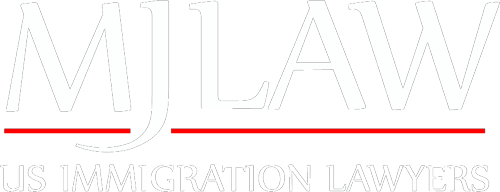LCA labor condition application
LCA: Labor Condition Application for H-1B, H-1B1 and E-3 Visas
To hire a foreign worker on an H-1B, H-1B1, or E-3 visa, the job must be a professional position that requires, at a minimum, a bachelor’s degree in the field of specialization. The occupation for which the H-1B, H-1B1, or E-3 classification is sought must also normally require a bachelor’s degree as a minimum for entry into the occupation. Fashion models of distinguished merit or ability may also apply for the H-1B program.
H-1B, H-1B1, or E-3 statuses require a sponsoring U.S. employer; an individual cannot gain status on his/her own. First, the employer completes preliminary actions prior to filing an application with the DOL. It must determine the prevailing wage for the position using one of the following:
- Requesting that a SWA prevailing wage determination be made (prior to January 1, 2010) or requesting that an OFLC National Processing Center determination be made (on or after January 1, 2010).
- Using a rate set forth in a collective bargaining agreement;
- Using a determination for the occupation and area issued under the Davis-Bacon Act (DBA);
- Using a determination for the occupation and area issued under the McNamara- O’Hara Service Contract Act (SCA);
- Using a survey conducted by an independent authoritative source; or
- Using another legitimate source of information including the OFLC Online Data Center.
Each employer seeking to hire an employee on H-1B, H-1B1, or E-3 non-immigrant status, must comply with these requirements:
- The employer shall submit a completed Labor Condition Application (LCA) on Form ET 9035E or Form ETA 9035 (if special permission is granted) in the manner prescribed by the regulations. By completing and signing the LCA, the employer agrees to several attestations regarding an employer’s responsibilities, including the wages and benefits and working conditions provided to US workers and the nonimmigrant workers.
- The employer shall make the LCA and necessary supporting documentation available for public examination at the employer’s principal place of business in the U.S. and/or the place of employment within one working day after the date on which the LCA is filed with ETA.
- The employer may submit a copy of the approved LCA to U.S. Citizenship and Immigration Services requesting H-1B or H-1B1 classification. For the E-3 visa, employers may or may not need to submit a petition to USCIS. Instead, foreign workers: (1) may apply for approval directly with a U.S. consulate; (2) pay a visa fee; and (3) are issued an I-94 entry/exit document at port of entry, to function as their work authorization.
- The employer shall not allow the nonimmigrant worker to begin work until USCIS grants the worker authorization to work in the U.S. for that employer or, in the case of a nonimmigrant who is already in H-1B status and is changing employment, to another employer until the new employer files a petition supported by a certified LCA.
- The employer shall maintain documentation to meet its burden of proof with respect to the validity of the statements made in its LCA and the accuracy of information provided, in the event that such statement or information is challenged.The employer shall also maintain such documentation at its principal place of business in the U.S. and shall make such documentation available to DOL for inspection and copying upon request.
“Helping you to obtain the right visa, when you need it”
When you contact our firm for an initial consultation, we will take the time to educate and explain the immigration laws, regulations and the visa application procedures for your particular case. As a client, you will receive personal attention and work directly with an experienced attorney who will be able to answer any questions you have and keep you informed and aware of new developments as your case moves forward.
For all of your legal immigration needs, contact the immigration lawyers of Muston & Jack, P.C., at our San Francisco, San Jose or Pasadena California law offices to schedule an initial consultation.

